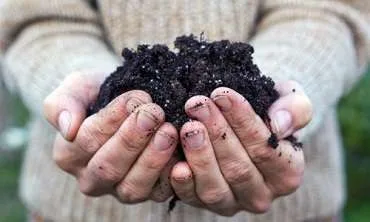Soil Management Course Specifically Designed for Crop Growers
Good soil conditions are critical to the healthy growth of most plants. Over seven lessons this course will develop an understanding of physical & chemical properties of soils, the ability to carry out simple tests and determine soil characteristics, and to decide ways of treating a soil to improve its ability to grow plants. This soil management course is specifically tailored for crop production.
Course Aims:
- Explain the physical and chemical properties of soils suitable for crop production.
- Use soil testing methods to assess soils characteristics suitable for crop production.
- Describe appropriate techniques for sustainable soil management for crop production.
- Explain the methods used in managing earthworks in a way which is sensitive to soil condition.
- Identify and propose solutions for a number of problems that may occur with soils for crop production.
- Describe the relationship between soil characteristics and plant health.
- Describe appropriate techniques for soil management in crop production.
There are 7 Lessons in this course:
There are 7 lessons in this course:
- Physical and Chemical Properties Of Soils
- How soil develops naturally
- The main rock forming minerals
- Types of rock
- Understanding soils
- Soil structure
- Water and air
- Soil temperature
- Organic matter
- Cation exchange capacity
- Conductivity
- Nutrition, major and minor elements, salts
- Diagnosis of nutritional problems
- Improving soils
- Fertilisers
- Composting
- Indore Method
- 14 day Method
- Sheet composting
- Worm Digester Method
- Trench composting
- The finished product
- Soil Testing Methods
- Naming the soil
- Soil sampling
- Checklists for sampling soil
- Common soil tests
- Methods for measuring: pH, organic matter content, water content, fertiliser solubility
- Testing the effects of lime in soil
- Laboratory testing of soil
- Sampling in greenhouses
- Measuring salinity
- Colorimetry
- Bulk densities of soils and potting mixes
- Checking the drainage rate of potting mixes
- Understanding soil analysis, including when, what and how to test
- Sustainable Soil Management
- What is organic growing
- Eco gardening
- The use of organic principles to help overcome soil problems
- Natural plant nutrition -including trace elements
- A quick guide on nutrient deficiencies in plants
- Earthworms
- Mycorrhizae
- Laying mulch
- Nutrition management
- Fertilisers
- Factors affecting fertiliser application
- Liquid fertilisers
- Organic fertilisers
- Natural fertilisers
- Mineral rock fertilisers and soil conditioners
- Soils and Managing Earthworks
- Earth forming
- Drainage
- Improving drainage after construction
- Points to remember when designing a drainage system
- Land Degradation and Other Soil Problems
- What can go wrong
- Chemical damage
- Rubbish and soils
- Salinity problems
- Gardening in dry areas
- Soil degradation
- Erosion
- Soil acidification
- Compaction
- Chemical residues
- A few hints with planting
- Physical plant protection methods
- Soil Science and Plant Health
- Organic carbon
- Phosphorus
- Soil colour,pH, porosity, texture, consistence and its effects on plant growth
- Soil profile, classification and description
- Factors of soil formation
- Weathering processes of soil formation
- Soil Management
- The use of legumes
- Soil management in orchards
- Soil management in market gardens
- Determining the kind and quantity of fertilisers to use
- Planning a vegetable growth site
- Soil management for vegetables
Each lesson culminates in an assignment which is submitted to the school, marked by the school’s tutors and returned to you with any relevant suggestions, comments, and if necessary, extra reading.

